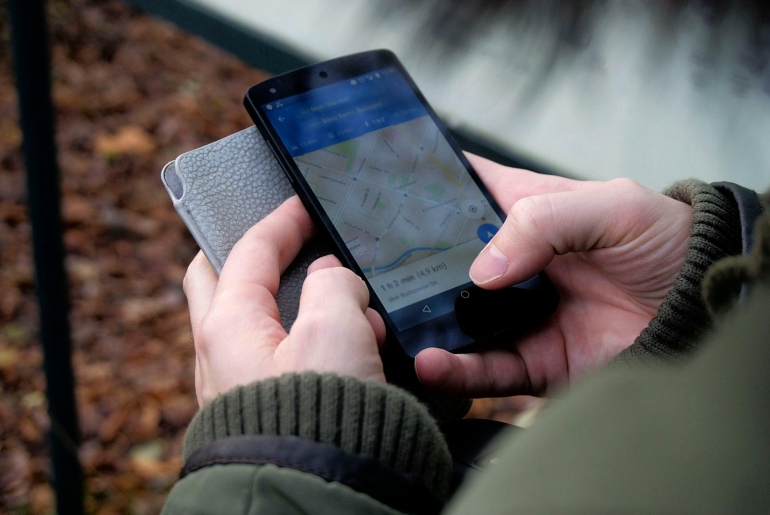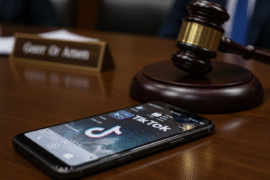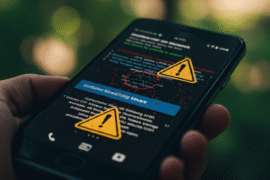This article may contain references to products or services from one or more of our advertisers or partners. We may receive compensation when you click on links to those products or services. Nonetheless, our opinions are our own.
The information presented in this article is accurate to the best of our knowledge at the time of publication. However, information is subject to change, and no guarantees are made about the continued accuracy or completeness of this content after its publication date.
In this digital era, the importance of geospatial data has become increasingly significant. The use of Geocoding API keys serves as a bridge to unlock this data, providing access to important information such as location coordinates, place names, and much more. However, with this power comes the responsibility to protect and ethically manage this data. This article will throw light on the ethical handling, data ownership, emergency response, and continuous vigilance in managing geospatial data using the Geocoding API key.
- Ethical Handling: Responsibilities in Managing Geospatial Information with Geocoding API Key
- Data Ownership and Consent: Ensuring Transparency and User Rights in Geocoding API Key Usage
- Emergency Response: The Critical Role of Geocoding API Key in Crisis Management and Assistance
- Continuous Vigilance: Strategies for Monitoring and Addressing Security Threats in Geocoding API Key Systems
- Recommended Reads
Ethical Handling: Responsibilities in Managing Geospatial Information with Geocoding API Key
The ethical handling of geospatial information involves respecting privacy, ensuring accuracy, and promoting inclusivity. A Geocoding API Key, such as the one provided by https://distancematrix.ai/guides/get-geocoding-api-key, is a powerful tool that should be utilized responsibly. Misuse or mishandling of such information can lead to serious repercussions, including infringement of privacy and potential legal implications.
Respecting user privacy is paramount when handling geospatial data. Developers and data managers need to be mindful of the sensitive nature of location data, which can potentially reveal personal information about a user. The geocoding API key should be used judiciously, ensuring that access to geospatial data is granted only to authorized individuals or systems. Moreover, it is essential to take measures to anonymize the data, where possible, to protect user identities.
Ensuring the accuracy of geocoded data is another critical aspect of ethical handling. Inaccurate geospatial data can lead to misguided decisions and potentially harm users. It is the responsibility of the data managers to verify the accuracy of the data collected via the geocoding API key and to update it regularly. Inclusivity, too, plays a role here. Geospatial data should be representative and unbiased, reflecting the diversity and realities of the world’s populations and landscapes.
Data Ownership and Consent: Ensuring Transparency and User Rights in Geocoding API Key Usage
Data ownership and consent are fundamental issues that need to be addressed when leveraging a geocoding API key. It is important to clearly define who owns the geospatial data that is collected and how it will be used. Transparency in this aspect can help prevent any misuse of the data and safeguard the interests of all stakeholders involved.
In the context of data ownership, the principle of ‘data stewardship’ is often emphasized. This principle asserts that data managers are custodians of the data rather than owners, and they have a responsibility to safeguard and manage it ethically. The users, on the other hand, are the true owners of their data and have a right to know how it is being utilized.
Consent plays a key role in this scenario. Before collecting or using geospatial data, explicit consent should be obtained from the users. They should be informed about the purpose of data collection, how the data will be used, and the measures taken to protect it. This fosters a culture of trust and respect between the users and the data managers.
Emergency Response: The Critical Role of Geocoding API Key in Crisis Management and Assistance
Geospatial data is a vital tool in emergency response and crisis management. A geocoding API key unlocks a wealth of location-based information that can be instrumental in responding to crises, be it natural disasters, health emergencies, or security threats.
In the event of a natural disaster, geospatial data can aid in accurately identifying the affected areas, enabling swift and targeted response efforts. Similarly, during a health emergency, such as a pandemic, geospatial data can help track the spread of the disease and identify hotspots.
Moreover, geospatial data can also play a crucial role in security-related emergencies. For instance, in cases of cyber threats or physical security breaches, geospatial data can provide valuable insights into the source of the threat, aiding in quick resolution.
Continuous Vigilance: Strategies for Monitoring and Addressing Security Threats in Geocoding API Key Systems
While a geocoding API key provides access to valuable geospatial data, it also presents potential security risks. Continuous vigilance is necessary to monitor and address these threats, ensuring the integrity and security of the data.
A key strategy in this regard is to implement robust security measures. This includes using secure encryption protocols, implementing strong authentication mechanisms, and regularly updating the system to patch any security vulnerabilities.
Regular monitoring of the system is also crucial. This involves tracking the usage of the geocoding API key, detecting any unusual activity, and promptly addressing any security incidents. Automated monitoring tools can significantly aid in this process, providing real-time alerts on potential threats.
In conclusion, managing geospatial data with a geocoding API key is a responsibility that should not be taken lightly. It involves ethical handling of data, respect for data ownership and user consent, readiness for emergency response, and continuous vigilance against security threats. By adhering to these principles, we can truly become the guardians of geospatial data.

Reviewed and edited by Albert Fang.
See a typo or want to suggest an edit/revision to the content? Use the contact us form to provide feedback.
At FangWallet, we value editorial integrity and open collaboration in curating quality content for readers to enjoy. Much appreciated for the assist.
Did you like our article and find it insightful? We encourage sharing the article link with family and friends to benefit as well - better yet, sharing on social media. Thank you for the support! 🍉
Article Title: Guardians of Geospatial Data: Safeguarding with Geocoding API Key
https://fangwallet.com/2024/02/16/guardians-of-geospatial-data-safeguarding-with-geocoding-api-key/The FangWallet Promise
FangWallet is an editorially independent resource - founded on breaking down challenging financial concepts for anyone to understand since 2014. While we adhere to editorial integrity, note that this post may contain references to products from our partners.
The FangWallet promise is always to have your best interest in mind and be transparent and honest about the financial picture.
Become an Insider

Subscribe to get a free daily budget planner printable to help get your money on track!
Make passive money the right way. No spam.
Editorial Disclaimer: The editorial content on this page is not provided by any of the companies mentioned. The opinions expressed here are the author's alone.
The content of this website is for informational purposes only and does not represent investment advice, or an offer or solicitation to buy or sell any security, investment, or product. Investors are encouraged to do their own due diligence, and, if necessary, consult professional advising before making any investment decisions. Investing involves a high degree of risk, and financial losses may occur including the potential loss of principal.
Source Citation References:
+ Inspo












































